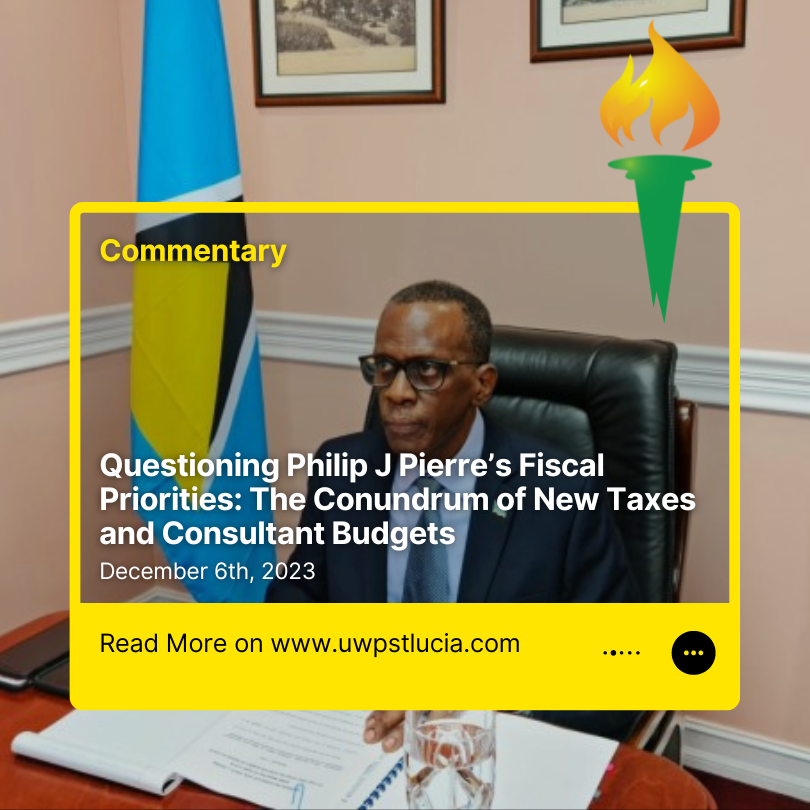Prime Minister Philip J Pierre’s decision to introduce a new 2.5% tax aimed at generating $33 million has come under tremendous scrutiny. The contentious issue arises not only from the imposition of additional financial burdens on the public but also from the simultaneous decision to increase the budget for consultants by a staggering $41 million.
The proposed 2.5% tax, designed to contribute $33 million to the national coffers, has left citizens grappling with the implications of increased financial strain, particularly in the wake of ongoing economic challenges. While the need for revenue generation to support public services and initiatives is understood, the burden of this tax seems disproportionately heavy on the shoulders of ordinary citizens.
What adds to the discontent is the seemingly contradictory decision to boost the budget allocated for consultants by $41 million. This substantial increase raises questions about the government’s priorities, especially when the country is grappling with economic uncertainties and the populace is being asked to contribute more.
The lack of clarity on how these financial decisions align with the government’s commitment to transparency and accountability has fueled public frustration. Citizens are seeking a comprehensive explanation for the significant hike in the consultant budget, especially when paired with the introduction of a new tax.
Transparency is not just a buzzword; it is a fundamental expectation in democratic governance. The citizens of any nation have the right to understand how their tax contributions are utilized, and when decisions appear to favor one sector over the other without clear justification, concerns about financial mismanagement naturally arise.
As the government grapples with budgetary decisions, it is essential to strike a balance that considers the economic realities faced by the public. The new tax, coupled with a substantial increase in consultant budgets, raises questions about equitable distribution and fair fiscal policies that prioritize the welfare of all citizens.
In times of economic uncertainty, leaders are called upon to make decisions that reflect an understanding of the challenges faced by ordinary citizens. While generating revenue is a necessity, ensuring that the burden is distributed fairly and with due consideration for the financial constraints of the populace is equally crucial.
Ultimately, the government’s ability to address these concerns transparently and make decisions that genuinely reflect the best interests of the nation will determine public confidence in its fiscal policies. The citizens of any democracy deserve nothing less. #PeoplePower#PierreEhCare#PuttingYouWorse#SaveOurSaintLucia


Former Acting Comptroller of Customs responds to Minister Ernest Hilaire
“Fellow St. Lucians, I have been trying to call Timothy on news spin to address the statements by Dr. Ernest Hilaire on the morning show, but I just am not getting through, so I am taking to my facebook page to address him. I heard first, the Prime Minister Mr. Philip Pierre in his address over the weekend state that…
Read more
by Content Manager